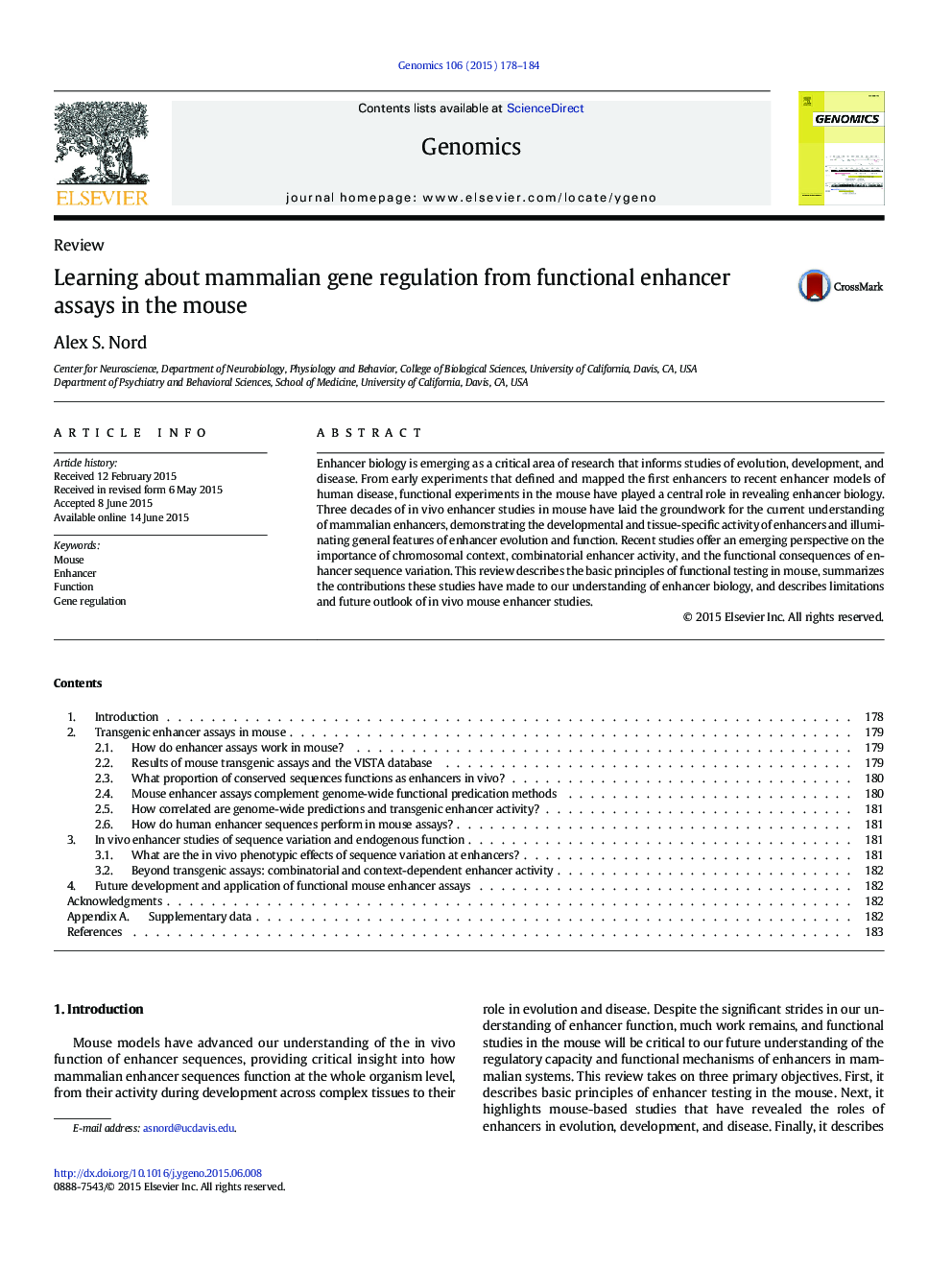| Article ID | Journal | Published Year | Pages | File Type |
|---|---|---|---|---|
| 5907721 | Genomics | 2015 | 7 Pages |
â¢Mouse transgenic enhancer assays reveal complex developmental patterns of enhancer activity in vivo.â¢Enhancer studies in mouse reveal the links between non-coding sequence variation and disease.â¢In mammals, gene regulation depends on enhancer landscapes and chromatin context.
Enhancer biology is emerging as a critical area of research that informs studies of evolution, development, and disease. From early experiments that defined and mapped the first enhancers to recent enhancer models of human disease, functional experiments in the mouse have played a central role in revealing enhancer biology. Three decades of in vivo enhancer studies in mouse have laid the groundwork for the current understanding of mammalian enhancers, demonstrating the developmental and tissue-specific activity of enhancers and illuminating general features of enhancer evolution and function. Recent studies offer an emerging perspective on the importance of chromosomal context, combinatorial enhancer activity, and the functional consequences of enhancer sequence variation. This review describes the basic principles of functional testing in mouse, summarizes the contributions these studies have made to our understanding of enhancer biology, and describes limitations and future outlook of in vivo mouse enhancer studies.
